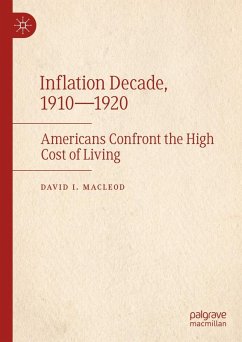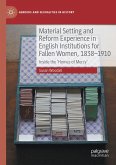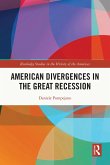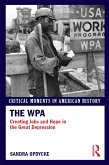This book shows how inflation can disrupt politics and society. With no recent precedent, mild inflation spurred mass protests, myriad remedial schemes, and partisan political reversals between 1910 and 1914. Then wartime demand and inflationary fiscal policy doubled consumer prices from 1915 to 1920, triggering waves of strikes, food riots by immigrant housewives, class conflict, and elite fears of revolution. Middle-class households resented falling real incomes. Even more than today, food prices dominated consumer concerns. Yet farmers wanted high commodity prices. Accordingly, both sides blamed and attacked meatpackers, wholesalers, and retailers. Then as now, inflation hurt whichever party held the White House. Fumbling responses by Wilson's administration and the Federal Reserve led to hesitant price controls, punitive raids and prosecutions, and a now-familiar fallback-high interest rates in 1920 and subsequent recession. An epilogue traces continuing popular and political responses to changes in the consumer price index down to 2020.
David I. Macleod is Professor Emeritus of History at Central Michigan University, where he taught American social and political history. His publications include Building Character in the American Boy: The Boy Scouts, YMCA, and Their Forerunners, 1870-1920 and The Age of the Child: Children in America, 1890-1920.
Dieser Download kann aus rechtlichen Gründen nur mit Rechnungsadresse in A, B, BG, CY, CZ, D, DK, EW, E, FIN, F, GR, HR, H, IRL, I, LT, L, LR, M, NL, PL, P, R, S, SLO, SK ausgeliefert werden.









